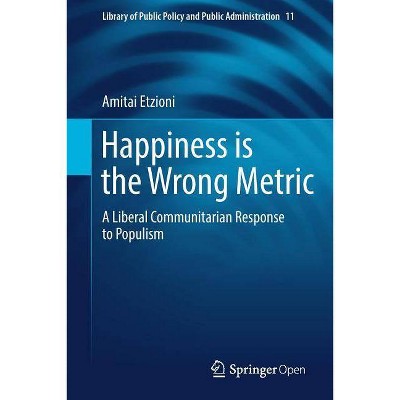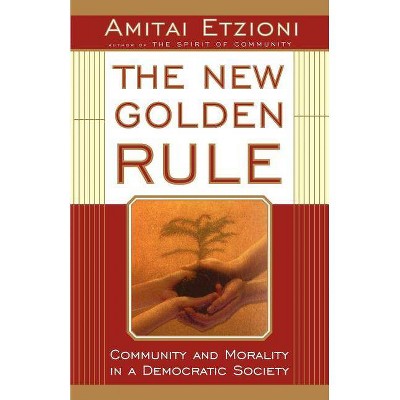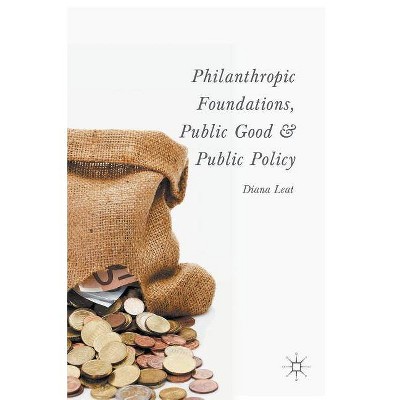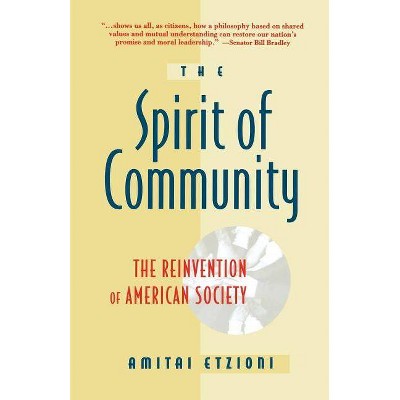Happiness Is the Wrong Metric - (Library of Public Policy and Public Administration) by Amitai Etzioni (Paperback)

Similar Products
Products of same category from the store
AllProduct info
<p/><br></br><p><b> Book Synopsis </b></p></br></br>Introduction.- Part I: What makes a good life.- Chapter 1. Happiness is the wrong metricChapter 2. Bring back the moral wrestler.- Part II: Human nature.- Chapter 3. Crossing the Rubicon.- Chapter 4. Moral dialogues.- Chapter 5. Moral effects of teaching economicsPart III: Job loss & right wing populism.- Chapter 6. Job collapse on the way to new Athens.- Chapter 7. Nationalist populism is not an enemy.- Part IV: Moral issues raised by individual rights.- Chapter 8. Free speech versus safe spaces.- Chapter 9. The right to be forgotten.- Chapter 10. Back to the pillory?.- Chapter 11. Moral triage.- Part V: A global dimension.- Chapter 12. Talking with the Muslim world.- Chapter 13. Defining down sovereignty.- Chapter 14. The case for decoupled armed interventions.- Part VI: Science and Technology.- Chapter 15. Incorporating ethics into artificial intelligence (with Oren Etzioni).- Chapter 16. Pros and cons of autonomous weapons systems (with Oren Etzioni).- Chapter 17. Robotic care of children, the elderly, and the sick (with Oren Etzioni).- Chapter 18. Transforming the active orientation.- Chapter 19. Communitarian bioethics.- Acknowledgements.<p/><br></br><p><b> From the Back Cover </b></p></br></br><p>This book is open access under a CC BY 4.0 license.<br></p><p>This timely book addresses the conflict between globalism and nationalism. It provides a liberal communitarian response to the rise of populism occurring in many democracies. The book highlights the role of communities next to that of the state and the market. It spells out the policy implications of liberal communitarianism for privacy, freedom of the press, and much else. In a persuasive argument that speaks to politics today from Europe to the United States to Australia, the author offers a compelling vision of hope. Above all, the book offers a framework for dealing with moral challenges people face as they seek happiness but also to live up to their responsibilities to others and the common good.</p><p><i>At a time when even our most basic values are up for question in policy debates riddled with populist manipulation, Amitai Etzioni's bold book creates a new frame which introduces morals and values back into applied policy questions. These questions span the challenges of jobless growth to the unanswered questions posed by the role of artificial intelligence in a wide range of daily life tasks and decisions. While not all readers will agree with the communitarian solutions that he proposes, many will welcome an approach that is, at its core, inclusive and accepting of the increasingly global nature of all societies at the same time. It is a must read for all readers concerned about the future of Western liberal democracy.</i></p><p><i><b>Carol Graham, </b>Leo Pasvolsky Senior Fellow, The Brookings Institution and College Park Professor/University of Maryland<br></i><i><br>In characteristically lively, engaging, and provocative style Etzioni tackles many of the great public policy dilemmas that afflict us today. Arguing that we are trapped into a spiral of slavish consumerism, he proposes a form of liberal communitarian that, he suggests, will allow human beings to flourish in changing circumstances.</i><i> </i></p><p><b><i>Jonathan Wolff</i></b><i>, Blavatnik Chair of Public Policy, Blavatnik School of Government, University of Oxford</i></p><p></p><p/><br></br><p><b> About the Author </b></p></br></br><b></b><b>Amitai Etzioni</b> is a University Professor and Director of the Institute of Communitarian Policy Studies at The George Washington University. He served as a Senior Adviser at the Carter White House and taught at Columbia University for 20 years, as well as Harvard University and the University of California at Berkeley. He is the author of <i>The Spirit of Community</i>, <i>The New Golden Rule</i>, <i>From Empire to Community</i>, and <i>The Good Society</i>, among others, as well as scores of academic and popular articles on communitarianism, including in the Encyclopaedia Britannica.
Price History
Price Archive shows prices from various stores, lets you see history and find the cheapest. There is no actual sale on the website. For all support, inquiry and suggestion messages communication@pricearchive.us




















